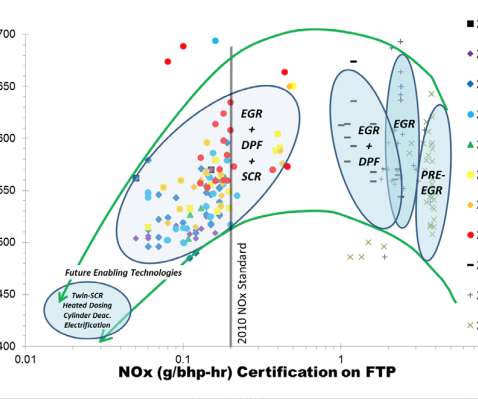ICCT working paper highlights benefits of current and emerging light-duty diesel technology; “promising pathway for compliance”
Green Car Congress
JULY 11, 2017
The ICCT team—John German and Aaron Isenstadt—concluded that diesels have and will retain two significant advantages over gasoline engines: significantly better fuel economy and cargo hauling and towing ability. Diesels offer a promising pathway for compliance and another option in manufacturers’ toolboxes. ”.

















Let's personalize your content